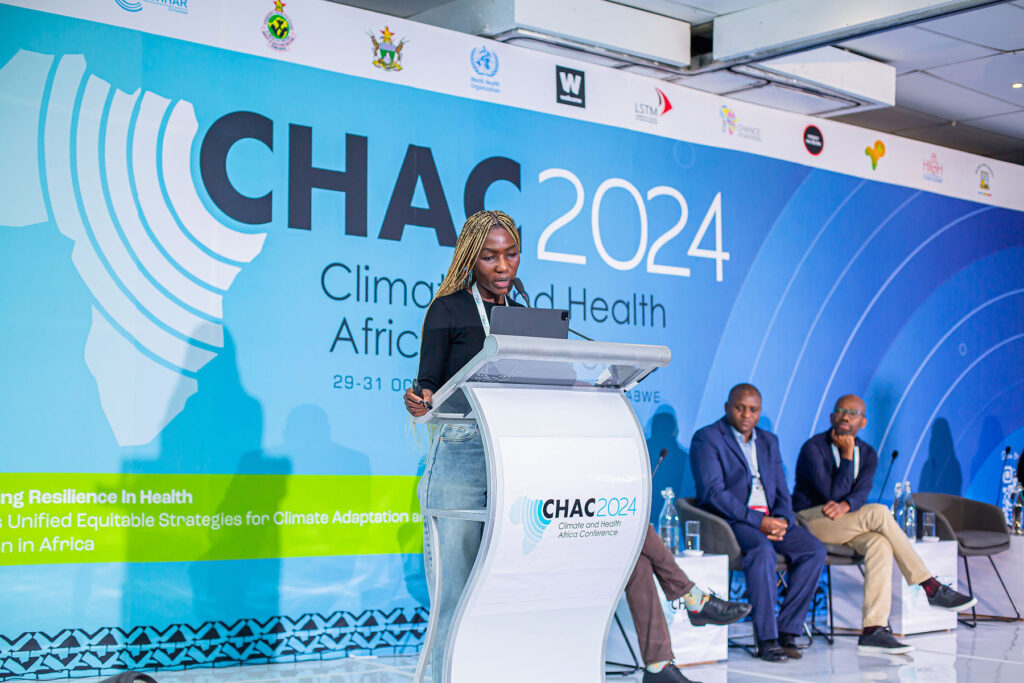HIGH Horizons researchers are proud to have taken part in Climate and Health Africa Conference 2024 (CHAC), the first conference in history to focus solely on the intersection of climate change and health in Africa.
The conference, held from 29-31 October, in Harare, Zimbabwe, was hosted by Centre for Sexual Health and HIV AIDS Research (CeSHHAR) Zimbabwe, in collaboration with the Zimbabwean Ministry of Environment, Climate and Wildlife and the Ministry of Health and Childcare.
“Africa’s disproportionate vulnerability to climate change and its significant health impacts necessitate a strong presence in global climate-health discussions,” said Dr Fortunate Machingura, conference chairperson, director of the Climate, Environment, and Health Department at CeSHHAR, and CeSHHAR’s principal investigator in the HIGH Horizons project, to the UN’s Africa Renewal magazine. “By occupying space at this table, African nations can advocate for tailored solutions, mobilize resources, and influence global policies to address their unique challenges and build resilience.”
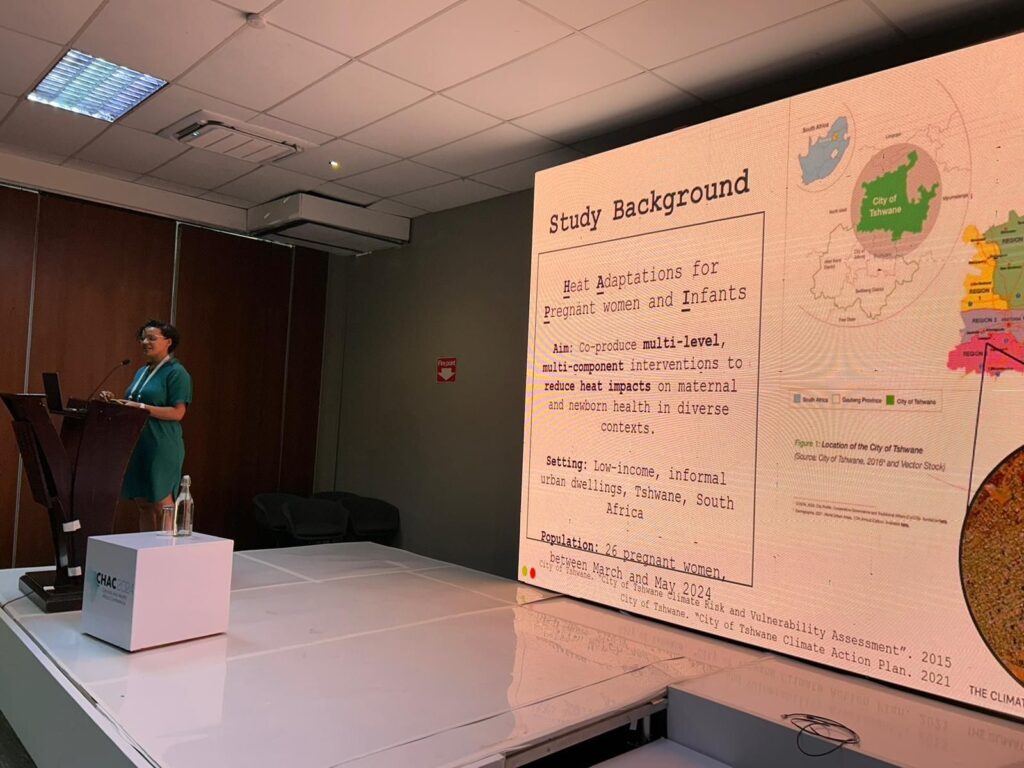
CHAC was the first event of its kind, bringing together over 400 delegates from 30 countries across Africa, including Ministers of Health, healthcare professionals, leading researchers from around the globe, and funders involved in climate and health.
“The main objective of CHAC 2024 is to foster networking and global partnerships, aligning Africa’s strategies with the broader global climate-health agenda,” Machingura told Africa Renewal.
Zimbabwean President Emmerson Mnangagwa gave the opening speech at the conference, telling the audience: “The right to protect our citizenry can never be delegated.”
On the last day of the conference, representatives from 54 nations, including 30 African states, signed the Harare Declaration, which champions a people-centered vision for climate resilience. The declaration states: “Africa should no longer be a passive recipient of global solutions, but a proactive architect of its own future systems for better health and wellbeing.”
The Declaration outlines six urgent priorities for climate-health resilience:
- African-led research to drive local climate-health solutions.
- Integrated policies to embed health within climate strategies across all sectors.
- Sustainable funding for health resilience initiatives that meet African needs.
- Capacity building to develop climate-responsive health systems.
- Community-driven adaptation that values local knowledge and cultural insight.
- Health advocacy at COP to strengthen Africa’s voice in global climate policy.
Two highlights from HIGH Horizon presentations at CHAC:
Turning down the heat by simulating a refurbished maternity ward in rural Zimbabwe
Dr Jørn Toftum, Professor in the Department of Environmental and Resource Technology at the Technical University of Denmark, presented on his team’s work to simulate ways to reduce the indoor heat a Mt Darwin District Hospital in Zimbabwe. The researchers simulated what would happen to the temperature inside the hospital if new insulation, overhangs, reflective roof paint, windows, air conditioning, air handling units, and ventilation grills were installed.


In his talk titled, “Effect of refurbishing a health care facility on indoor thermal exposures,” he shared the results of his team’s simulations, showing the magnitude of projected temperature decreases with different types of refurbishment.
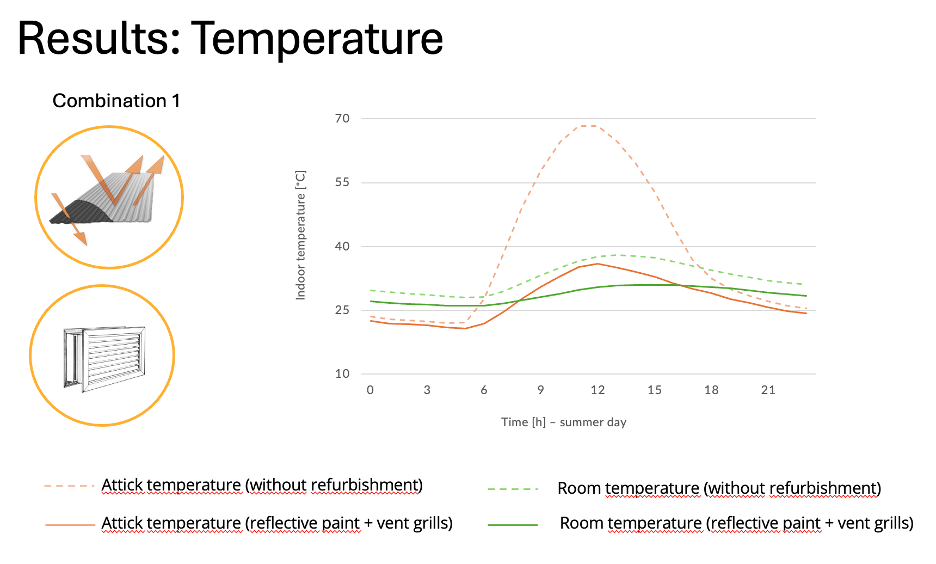
Toftum said the findings could have big implications for how health facilities are built and refurbished to deal with extreme heat in the future: “The results showed that it is possible to reduce significantly the indoor exposures to heat by modifying the building.”
Early-career awards
Two High Horizons researchers won the Early Career Researcher Award and Oral Abstract Presentation Award: Jetina Juliet Tsvaki, a Data Scientist at CeSHHAR Zimbabwe, and Nicholas Brink, Clinical Researcher at the University of Witwatersrand in Johannesburg.
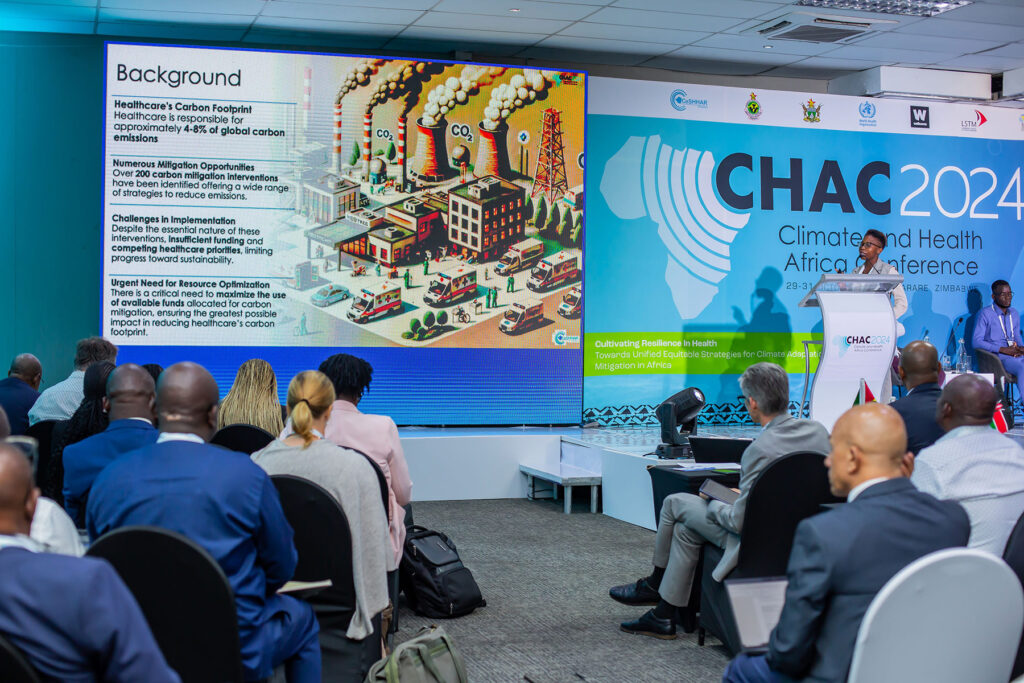
Jetina Juliet Tsvaki presented on her research group’s efforts in Kenya and Zimbabwe to decarbonise health facilities: “CARBOMICA: Application of a financial resource-allocation modelling tool for carbon mitigation interventions in healthcare facilities; a multi-country study from Mt Darwin Hospital, Zimbabwe & AKHS Mombasa Hospital, Kenya”
CARBOMICA is a tool designed for decision-makers at healthcare facilities that want to mitigate (reduce) their carbon emissions but have limited financial resources. It harnesses advanced data science methodologies to suggest carbon mitigation measures for healthcare facilities given budget constraints.
“The study addresses a critical intersection between healthcare, finance, and environmental sustainability, offering insights that can drive positive change in healthcare facilities and inspire similar initiatives in other regions,” said Tsvaki of the CARBOMICA project.
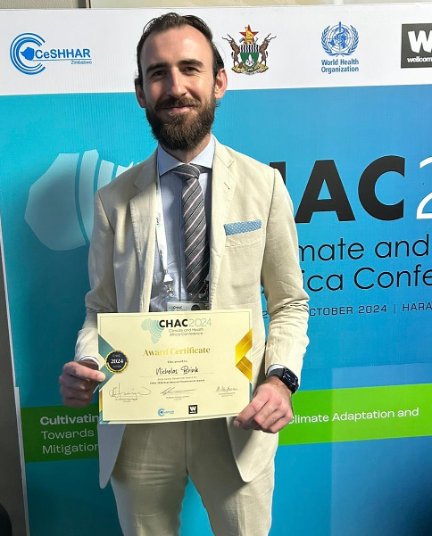
Dr Nicholas Brink spoke about the findings of a groundbreaking new systematic review published in Nature Medicine in November on the impacts of heat on pregnant women and newborns, led by Dr Darshnika Lakhoo and Prof Matthew Chersich of Wits PHR, to which he also contributed. The systematic review found severe and wide-ranging impacts of heat on this vulnerable population, with those in lower and middle income countries (LMICs) most affected.
The review provided clear evidence that heat is harmful for pregnant women and newborns, and that climate change threatens to reverse decades of progress in improvements in maternal, neonatal, and child health. It also provided evidence that those that are least responsible for the crisis, living in poorer nations in the global south, are most affected.
For Brink, the review is a call to action: “We have an urgent responsibility to do everything we can to protect this vulnerable population from the impacts of climate change.”
Reflecting on the conference, Brink found that it had unique value: “The conference provided an incredible platform to learn from research conducted on the African continent, largely by African researchers.
“High Horizons, in particular provided an excellent example of the power of equitable North-South partnerships. This was evident not only in the strength of the research presented, but through the diverse individual researchers from HH contributing to the conference, not least of all the conference chairs, Dr Fortunate Machingura and Prof Stanley Luchters, but also the early career, and local researchers.”
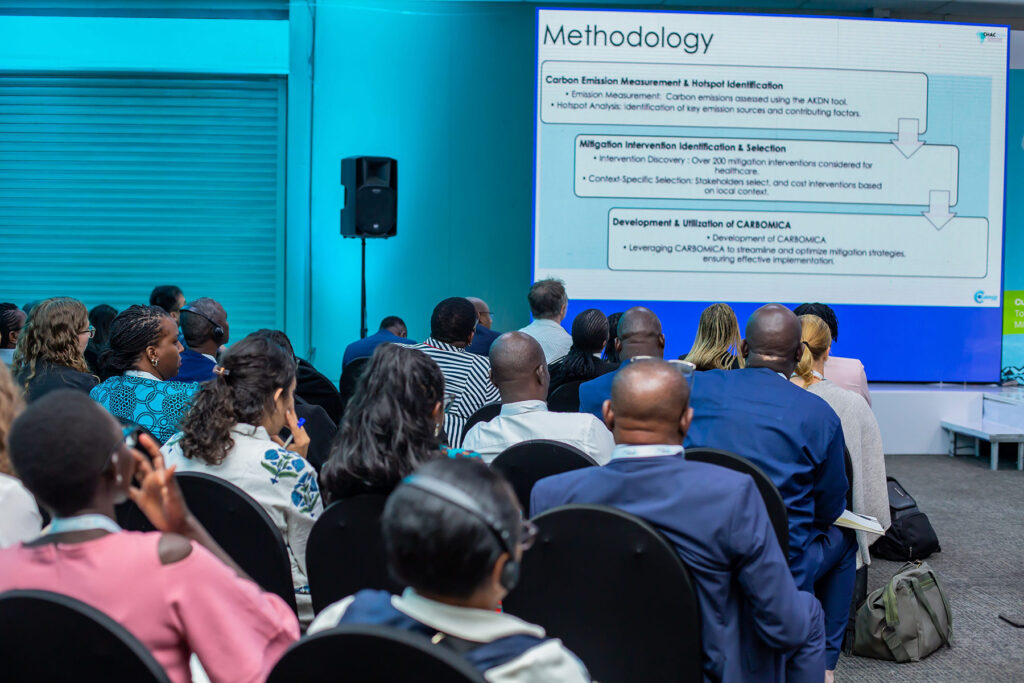
For a deeper dive into our work at CHAC, learn more about HIGH Horizons researcher presentations and posters on the conference website.

